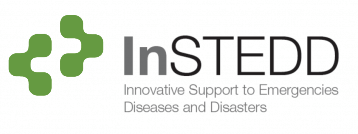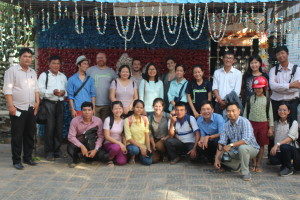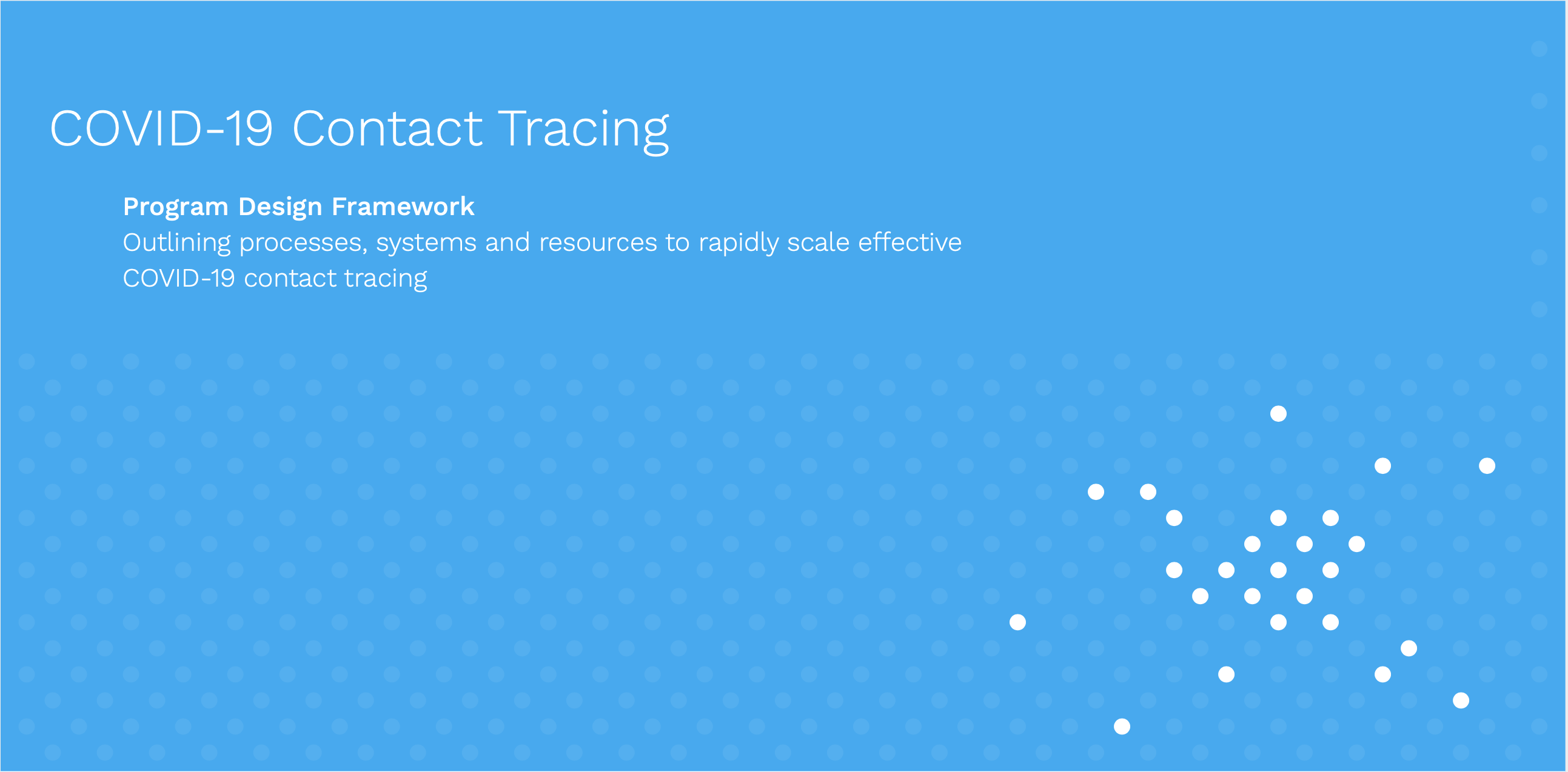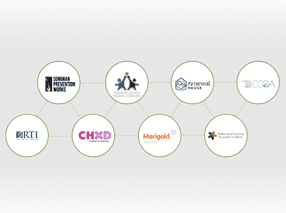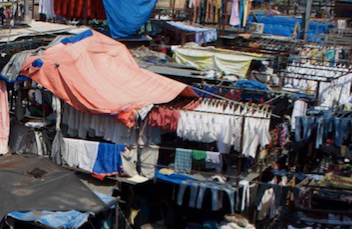January 25th, 2017- InSTEDD iLab Southeast Asia, (iLab SEA) funded by The Swedish Program for ICT in Developing Regions (SPIDER), conducted its InSTEDD iCamp (aka Innovation Camp) to help a dozen civil society agriculture organisations to improve farming production in Cambodia.
InSTEDD iCamp is a one-day rapid prototyping workshop designed to give an opportunity to all agricultural development actors to discuss their work challenges and to both propose solutions and to validate ideas with real farmers.
Participants were grouped for the day with the iLab team who assisted in identifying the challenges of farming production. Through the InSTEDD iCamp, participants from seven development organisations and companies presented the challenges related to their work, with the top 5 ideas being discussed in groups to find solutions.
The top farming production challenges after voting were:
- How to improve an irrigation system.
- How to help farmers to find a market for their products with reasonable price and high quality products.
- How to provide localized weather forecasts.
- Farming systems for disabled farmers.
- Promote quality seeds for farmer to use to help improve paddy for export.
To understand the challenges and to generate ideas, each group was guided by an experienced facilitator. Human-centred design (HCD) practitioner Akira Morita, AGILE Development Director Ian Jones, and the iLab SEA team walked the participants through a process to define their proposed challenges, generate ideas, and design prototypes. Each group was active in discussions to find the best solutions to help farmers. After proposing a solution, each team had a chance to validate their ideas with farmers.
Proposed Farming Solutions:
- How to improve an irrigation system:
 To help a farmer to access water, the team thought of building a dam for the community.
To help a farmer to access water, the team thought of building a dam for the community. - How to help farmers to find a market for their products with reasonable price and high quality products:
 Training the farmer on crucial subjects such as financial literacy, water management, and vocational training, would help farmers understand how to grow and sell their crops with high quality.
Training the farmer on crucial subjects such as financial literacy, water management, and vocational training, would help farmers understand how to grow and sell their crops with high quality. - How to provide localized weather forecasts:
 Farmers can stay updated on the weather by using the phone to provide weekly update information about upcoming weather and as well as provide some voice-recorded education to a participating farmer.Information from a mix of weather collection services would provide accurate data that can be simplified,recorded, and distributed by recorded message to a low tech phone.The farmers would be willing to pay 2000 Riel per month for the service.
Farmers can stay updated on the weather by using the phone to provide weekly update information about upcoming weather and as well as provide some voice-recorded education to a participating farmer.Information from a mix of weather collection services would provide accurate data that can be simplified,recorded, and distributed by recorded message to a low tech phone.The farmers would be willing to pay 2000 Riel per month for the service. - Farming systems for disabled farmers:
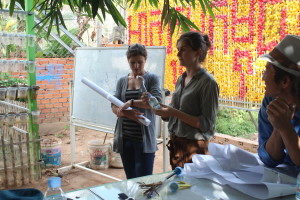 To support farmers with a disability, the team created attachment tools that would connect to their prosthetic arms that would enable users to do various farm-related mechanical tasks.
To support farmers with a disability, the team created attachment tools that would connect to their prosthetic arms that would enable users to do various farm-related mechanical tasks. - Promote quality seed for farmer to use so that it can help improve paddy for export:
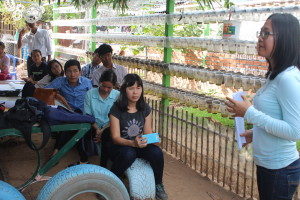 Create a Facebook page to provide specific information about the quality of a seed and Provide immediate response when there is a question.
Create a Facebook page to provide specific information about the quality of a seed and Provide immediate response when there is a question.
At the conclusion of this iCamp, InSTEDD iLab Southeast Asia made additional appointments with individual Institutions to continue discussions of project development. We are encouraging all participants who wish to continue working on these challenges to meet,discuss, and incubate projects together, to address current and future needs of local farmers. InSTEDD iLab Southeast Asia is looking forward to involve all related stakeholders to join the next iCamp event.
